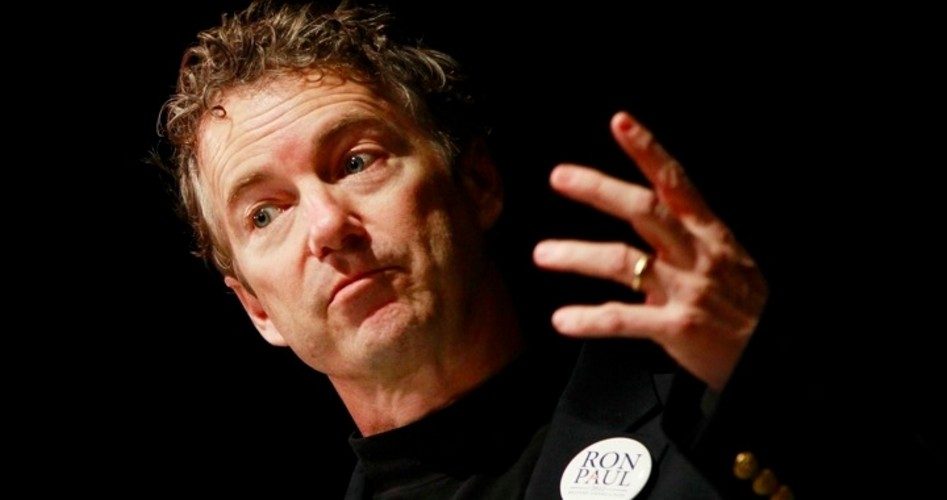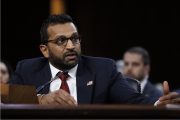
Although the GOP has yet to announce the addition of Ron Paul to the roster of speakers slated to address the party’s national convention later this month in Tampa, his son, Kentucky Senator Rand Paul (pictured), is on the program.
Reuters reported late Monday night that Senator Rand Paul (R-Ky.) will be one of several high-profile Republicans whose participation has been confirmed by the Republican National Committee (RNC).
Rand Paul was elected to office in 2010 running on a constitutional platform supported by his father and other philosophically similar candidates such as Senator Mike Lee of Utah and Congressman Justin Amash of Michigan.
Like his iconic father, Rand Paul has a wide libertarian streak running through his politics. During his first term in office, Paul has fought earnestly for the protection of civil liberties against federal intrusions, as well as for an end to the multiple unconstitutional foreign conflicts being carried out by the U.S. military. With remarkable consistency he has battled against ballooning federal budgets, the near-constant violations of the Fourth Amendment on the part of the TSA (with which he had a personal run-in last year), and the disturbing attempts by the federal government to seize control of the Internet.
Even though certain of these positions place him at odds with the GOP Establishment (including the presumptive nominee, Mitt Romney), Senator Paul endorsed Romney during an appearance on the Sean Hannity Show in June. Paul explained his unexpected actions, telling the host that although his “first choice had always been [his] father,” now that the nominating process is over he would be campaigning for Mitt Romney.
Given his very public demonstration of support for Romney’s run for the White House, it is unlikely that Senator Paul will attack the former governor of Massachusetts directly on those points where their policy positions diverge.
Besides, Romney may have given the green light to Rand Paul’s addition to the roster as a paean to the substantial bloc of libertarian-leaning Republicans believed to be the most ardent of the grassroots activists and that, if converted to his cause, could potentially sway things Romney’s way in November.
In a report published August 6 by the Cato Institute, Republican candidates would do well to recognize and respect the undeniable electoral influence wielded by the expanding libertarian wing of the GOP. In its report entitled “Libertarian Roots of the Tea Party,” Cato writes:
Libertarians led the way for the tea party. Starting in early 2008 through early 2009, we find that libertarians were more than twice as “angry” with the Republican Party, more pessimistic about the economy and deficit since 2001, and more frustrated that people like them cannot affect government than were conservatives. Libertarians, including young people who supported Ron Paul’s 2008 presidential campaign, provided much of the early energy for the tea party and spread the word through social media.
Understanding the tea party’s strong libertarian roots helps explain how the tea party movement has become a functionally libertarian influence on the Republican Party. Most tea partiers have focused on fiscal, not social, issues — cutting spending, ending bailouts, reducing debt, and reforming taxes and entitlements — rather than discussing abortion or gay marriage. Even social conservatives and evangelicals within the tea party act like libertarians. The tea party is upending the conventional wisdom that Republican candidates must placate socially conservative voters to win primaries.
Increasingly, Republican candidates must win over tea party voters on libertarian economic issues.
To the extent the Republican Party becomes functionally libertarian, focusing on fiscal over social issues, the tea party deserves much credit — credit that political strategists, scholars, and journalists have yet to fully give.
If the Cato Institute has accurately described the complex composition of the modern “big tent” Republican Party, then one wonders why the man called “the Godfather of the Tea Party” has yet to be invited to speak at what is expected to be the coronation of Mitt Romney.
Were Mitt Romney sincere (and savvy) enough in his quest to unite Republicans behind his campaign to oust Barack Obama, it would seem that not only would he go out of his way to give Ron Paul room to speak, but he would also insist that his erstwhile rival be afforded a primetime spot and enough time to convince his legion of supporters that a vote for Mitt Romney is not a vote for all the things he has fought against for so many years: namely, a perpetuation of the wars overseas and the steady (albeit slower) growth of the federal behemoth that is daily draining the sovereign lifeblood from the states.
For now, those mostly young voters who have dedicated their time, talents, and money to the preaching of the gospel of Ron Paul will have to rely on Rand Paul to proclaim their message to the masses. Judging from the roster released Monday by the RNC,they are unlikely to hear anything even slightly anti-Establishment from any one of those Republicans joining Senator Paul in the lineup.
A message posted on the convention website by RNC Chairman Reince Preibus reveals that Senator Paul will be joined as a “headliner” at the Tampa confab by former Republican presidential hopeful Rick Santorum, former Florida Governor Jeb Bush, and Oklahoma Governor Mary Fallin. Additional convention speakers, including the keynote, will be announced in the coming days and weeks.
When asked by reporters Monday as to whether he was meeting with former governor of Minnesota Tim Pawlenty and Senator Rob Portman in order to vet them for the VP spot on the Republican ticket, Romney laughed and refused to answer the question.
While either Pawlenty or Portman (or both) will likely be given a prime speaking slot at the convention to be held later this month, there remains a sliver of a chance that Preibus, Romney, and GOP, Inc. will give the retiring Ron Paul — an indisputable icon and consistent constitutional standard bearer — a spotlight at the convention.
Regardless of their decision, Ron Paul counts as many as 500 delegates (including many bound to Romney) among those who will be called on to nominate the Republican challenger to Barack Obama. Many of these Paul devotees will be hard-pressed to vote for Mitt Romney if he behaves disdainfully toward the man they still look to for political salvation of our Republic and the principle of liberty upon which it was founded.
Photo of Sen. Rand Paul: AP Images


